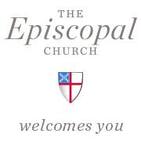Executive Council Meeting Overview of January 22-25, 2021By The Rev. Lillian Davis-Wilson Clerical Representative to Executive Council Many of you saw the daily morning plenary sessions since it was lived streamed. Therefore, this will be an overview for our province members who were not able to live stream the meeting. Presiding Bishop Michael Curry expressed that the church has much work to do in affirming Jesus’ way of love and rejecting the divisive threat of Christian nationalism. Quoting from Biden’s inaugural address, “we must end this uncivil war” as he connected the Christian call to love one’s enemy. Curry said I believe that we have been given our marching orders: our mission from God is to heal God’s lost creation, to bind up the broken, to repair the breach, to do the hard disciplined work of love. This way of love is unselfish and sacrificial, it is the way to save a democracy and save the world. It is our hope.” Curry repeated several times Biden’s inaugural call for unity. If Jan. 6 was a “vision of hell,” he said, the inauguration was filled with reasons for hope. “It had nothing to do with whether a Republican or Democrat got elected, I saw some hope,” Elected leaders from both parties came together to witness the peaceful transition of power, “I saw some hope,” when the nation welcomed Vice President Kamala Harris as the first woman, first Black American and first Asian American to hold that office, there was more hope. “There is always light, if we are brave enough to see it, if we are brave enough to be it,” Curry said quoting from Amanda Gorman’s poem, “The Hill We Climb.” Curry spent part of his opening remarks highlighting “From Many, One,” a campaign that the church launched this month to encourage Episcopalians to engage in thoughtful conversations with people who disagree with them. “We need to reach out to each other across our differences, across the divides. We need to reach out and bless each other as people made in the image of God, as children of God.” The Rev. Gay Jennings, president of the House of Deputies, expressed hope for the future as she recounted how some of the rioters who stormed the Capitol “declared allegiance to Jesus and the former president, sometimes conflating them” in the signs, banners and flags they carried. “The stories, signs and symbols of our faith are being put to violent use by people who want to establish a nation in which power and privilege is held exclusively by white Christians.” “The use of Christianity to advance white supremacist extremism did not begin in 2016, and it did not end at noon on Wednesday (January 20th). … This violent and exclusionary movement is on the rise in the United States. … We have a special responsibility to stand against it.” Some of her comments paralleled those of The Presiding Bishop. Jennings also spoke of “Zoom fatigue” in her opening remarks and thanked everyone for their continuing perseverance navigating this new, way of carrying out church business. She highlighted the numerous executive actions by Biden during his first days as president. By executive order, Biden committed the government to fully implementing a June 2020 Supreme Court decision ending workplace discrimination against LGBTQ people. Jennings and Curry were lead signers of a legal brief calling for that court ruling, with more than 700 other faith leaders. The Supreme Court’s decision was never acted on, but with Biden’s action, LGBTQ people have been assured of the legal protections the court ordered. “This is an enormous victory,” Jennings said. “The Episcopal Church’s witness made a difference in moving the United States closer to justice for all of God’s children.” Jennings also spoke of the need for the country to heal after the Capitol riot, but she also offered a word of caution. “We hope and pray that it’s over now because the former president is out of office and off of Twitter.” But Jennings underscored the continued need to pursue “deradicalization” in the United States – an issue that The Episcopal Church’s Office of Government Relations had outlined in a paper in October. The Episcopal Church has the opportunity to respond to this threat by offering an ‘off-ramp’ for those who have joined extremism groups, expanding the possibility of reconciliation and forgiveness.” After the opening remarks a treasurer’s report from Chief Financial Officer, Kurt Barnes assured Executive Council that the balance sheets continue to contain mostly “good news.” Income and expenses for 2020 were mostly in line with the revised budget for the year. Investment income, was a bright spot, with a return of nearly 20% for the year. The church’s annual appeal topped $500,000, far exceeding its goal, a strong year of fundraising by the Development Office. And despite fears about how the pandemic would affect the bottom line for dioceses and congregations, nearly all paid what they had pledged in assessments. “As I’ve sort of preached all year, we should remain calm during short-term jolts,” Barnes said, while acknowledging, “we’re still looking at economic forecasts that are uncertain.” The Executive Council’s ongoing racial reconciliation efforts continue as we broke into small breakout groups to discuss dismantling racism, the attack on the Capitol, law enforcement’s response and poet Amanda Gorman’s poem. The Council met in committees in the afternoons of the 4-day meeting and reviewed the racial justice audit of Episcopal leadership, New life in Church advocacy in Public Policy- rejoining the WHO, the Paris Agreement, immigration followed by our wrap up and resolutions on Monday:
Comments are closed.
|
Archives
July 2024
Categories |

 RSS Feed
RSS Feed



